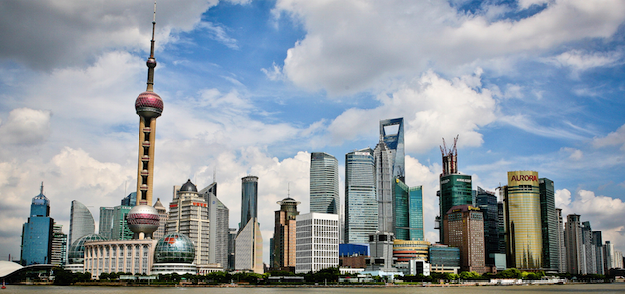Why China's E-commerce Rules Have Exporters in a Flurry

China’s recent crackdown on import duties applied to online goods shipped through free-trade areas. Will this have a negative impact on investment in China?
Many travellers’ favourite game involves finding original ways of increasing the amount of duty-free goods they bring through customs. Here in Australia, for example, we appear so fascinated by customs procedures that the reality TV show Border Security is in its 15th season, and has been exported to nearly a dozen countries.
Recently, Beijing appears to have taken a similar interest in the world of import procedures. It has decided to crack down on Chinese nationals evading tax and customs duties in free trade zones, in airports and at duty-free shops.
The new Chinese rules are often described as ‘e-commerce laws’. This is not quite right. They are import duties that are being applied to goods shipped through free trade areas (such as special trade zones in major trading cities). Previously, these duties were waived or reduced for goods that went through the free trade areas.
Starting 8 April this year, goods that are bought and sold online through the free trade areas became subject to new duties — although the ins and outs of what duties apply to which products are still being debated. At the same time, Chinese regulators announced that they would be forcing importers to re-register their products.
Australian investors, in particular, fell in a muddle following the introduction of these new regulations. The share prices of Australian vitamin and milk product producers fell as much as 10 per cent in a week on fears of the impact of these new rules. Australia’s strong reaction to the crackdown makes sense in some ways — milk powder and vitamins are some of the most-sold products online in China.
The size of China’s vitamin and health supplement market has doubled in the last eight years to over US$12.9 billion and Australian companies have reaped the benefits. The share price of Blackmores, one key Australian producer, has grown by over 220 per cent in the past 12 months alone. Some investors now fear these gains are under threat.
Fears were not just limited to Australia. South Korean and Japanese online businesses that sell clothes and cosmetics have been particularly successful selling to the Chinese market. Many nations’ firms and services providers are keen to take advantage of the massive Chinese market for high-end, reliable, clean food and herbal products.
And the new regulations are just the latest in a series of measures aimed at regulating China’s booming e-commerce market. In September last year, the State Council, China’s cabinet, announced that it would be more rigorously implementing the 2010 Customs and Duties Law. This ‘crackdown’ already made many e-commerce sites in China (or e-commerce services providers who supply Chinese customers) wary of stocking foreign goods.
But the share price fall is more due to fears over the regulations rather than due to the regulations themselves. Many Chinese e-commerce or duty-free services firms are unsure about how the regulations will be applied, and so removed products they were uncertain of (such as milk powder) from their metaphorical online shelves. Though products were removed from the shelves while firms determined how to apply the new regulations, this seems to only be a temporary reaction.
In the medium term, foreign products will almost always be more expensive to Chinese consumers than domestic alternatives. A 10–20 per cent increase in the price of imported goods is unlikely to deter Chinese consumers from buying a guaranteed clean and reliable product.
In the longer term, it was always going to be unsustainable for tax rates to vary from area to area within China. This leads to business loopholes that can be taken advantage of by savvy Chinese consumers and service providers. Some form of rule change was inevitable.
Trade will not suffer significant damage due to these new regulations. While it is hard to support any increase in taxes or charges, these new rules seem to be aimed at making China’s tax regime consistent, rather than aimed at increasing protectionism.
The bigger problem is one of foreign businesses not really knowing what’s going on in China, or being more fearful of events in China than they should be.
Foreign observers (this correspondent included) often overreact to regulatory changes rather than sensibly explaining them, or treat every regulatory change in China as being something that should be fought.
Attacking all regulatory changes leaves foreign nations open to charges of hypocrisy. For example, in Australia only a year ago, the Assistant Treasurer floated changing the tax thresholds for goods purchased overseas via the internet. The move was praised by small business associations as ‘helping Australian retailers’. Chinese newspapers published almost identical articles when the State Council changed its regulations in September.
It would be in foreign businesses’ interests to change many Chinese regulations, but the new e-commerce regulations are not chief among them. A more sensible target would be the regulations that make it difficult for foreigners to invest in China.
More broadly, a smarter way forward would be to think about what sort of regulations suit foreign interests and to encourage them. China’s political system is likely to be here to stay — no matter what one thinks of it — and blindly reacting to every regulation put out by that system is not in anyone’s interest.
Many years ago, Australia described itself as aiming to be a country with which China could have a ‘model relationship’, a country whose own experiences of reform could be used by China to reform itself. As China reforms its economy, perhaps it is time to go back to that formulation.
Dr Ryan Manuel is a postdoctoral fellow at the Australian Centre on China in the World at the Australian National University. This article originally appeared on East Asia Forum on 3 May. It is republished with permission.





